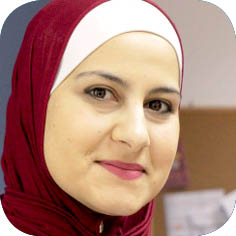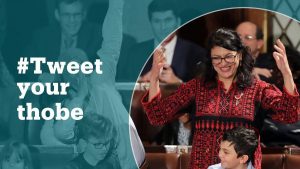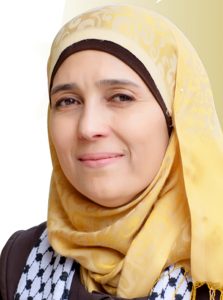With the rise of digital communications over the last decade, the concept of “branding” is becoming rapidly applicable not only to businesses, goods, and services, but also to persons. Personal branding is about managing impressions, creating identities, and building a distinctive persona out of the human character. Most commonly, people develop their personal brands to differentiate themselves in the employment market. We Palestinians, however, have a stronger reason to ensure that our personal brand is well-defined and presented: it is our core mission to defend our identity and the image of Palestine in the eyes of the world.
When we look at the portrayal of Palestinians in the Western media, it is obvious how certain images and messages repeatedly promote common biases and stereotypes. In the best-case scenarios, these images are for “irrational protestors” or “poor victims” or “angry people,” and in many worst-case scenarios, they are faces of “violence” and “terrorism.” Moreover, Palestinians are often presented to the world as people “in need of aid,” which unfortunately creates the impression of “incompetency.” If anyone searches Google images for “Palestinian,” the outcomes give no better impressions than those described above.
For many, if not for all Palestinians, this is quite disappointing and offensive, yet…the good news is that each and every one of us can actually play an active role in debunking these impressions by building and reshaping our personal brands. In fact, we can play a more effective role than an ambassador or a diplomat! Although diplomacy is traditionally known to be an international-relations activity restricted to the nation-state domain, it is nowadays becoming a tool for every citizen: the teacher, the artist, the athlete, the businessperson − all citizens no matter what their field or specialty, thanks to social networking technologies that have facilitated this transformation.
In fact, it is very rare to find the trending communications concept of “personal branding” associated with “citizen diplomacy.” It is not very common to hear of someone who wants to build a personal brand to advocate for a cause or mediate between nations. However, when one person is distinguished globally by a unique invention, idea, story, etc., people often tend to ask where the person is from. Any distinctive achievement or input that becomes globally known is often packaged in people’s minds under the nationality label. So, yes, these two concepts are clearly intertwined.
The American Palestinian Rashida Tlaib was sworn in to Congress wearing the Palestinian thobe, after her professional achievement of winning the democratic nomination for the U.S. House of Representatives seat from Michigan’s 13th congressional district. She had posted an image of her beautifully embroidered thobe to her Instagram: “Sneak peek,” she captioned the photo. “This is what I am wearing when I am sworn into Congress. #PalestinianThobe #ForMyYama.” Following this simple action, a massive international digital campaign was launched, inviting women to post photos of themselves on social media wearing Palestinian thobes, representing their pride in and support of their fellow citizen, under the hashtag #TweetYourThobe.
In an interview with Tlaib for Elle, the worldwide lifestyle magazine of French origin, she told the human story behind the thobe, saying that it is a way to honor both her roots and her mother, who dropped out of eighth grade in the Palestinian village of Beit Ur al-Foka to embroider dresses in order to earn a living. Many articles from all over the world began to mention this incident, thus shedding light on the strength of the Palestinian woman.
Tlaib has been working on establishing her career as a lawyer and politician since she was an intern in the state legislature in 2004. She started as an ordinary person and, with the help of social networking technology, ended up as a citizen diplomat for Palestine. As for the Palestinian women who posted photos of themselves wearing the Palestinian thobe, they are also ambassadors of Palestine. Spreading the word about the inspirational stories behind a persona is also an action of citizen diplomacy.
The Palestinian neurosurgeon Dr. Walid Al Banna was named top innovator in the Arab world for creating “eyeglasses for brain health,” which increase the quality of aftercare for patients who have suffered a stroke. His story became famous and went viral. The same applies to the story of Palestinian teacher Hanan Al Hroub, who won the 2016 Global Teacher Prize in a competition that included more than 8,000 international teachers. Though these personalities come from different fields, they both serve to strengthen the international image of Palestinians.
In addition to bringing unique insight into a specific domain, personal brands – digital and traditional – are often nourished by consistently sending messages to the world about topics, ideas, images, and most importantly, human stories relevant to the individual’s specialty, just like the case of Tlaib. Being present and known is fundamental to being labeled a specialist or of unique value to a certain domain or industry.
In this context, there is no doubt that the latest trends in communication tools, tips, and skills need to be strongly present in the educational syllabus and teaching methods. This will ensure that the coming generations be proficient in building and maintaining their personal brands.
Palestine is full of brilliant and competent people who have not yet raised their voices or established their personal brands, although their voices are strong enough to shape new perspectives and calls for action. It’s time to share, post, tweet, and spread the word about Palestinian niche insights and expertise. At the end of the day, they will be perceived in the public mind as #Palestinian.




